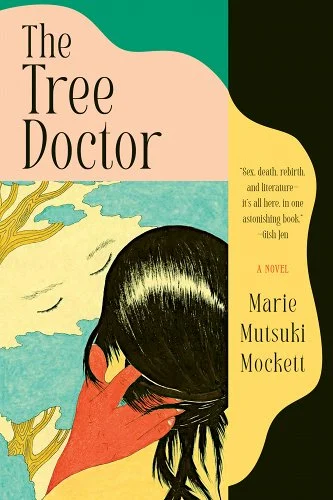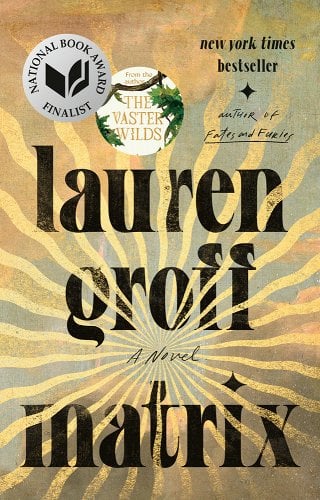This post may include affiliate links, which means we make a small commission on any sales. This commission helps Feminist Book Club pay our contributors, so thanks for supporting small, independent media!
I want to hear stories about the pleasure and the privilege of growing older. But all of my timelines are awash with negative information about hormones and aging. TikTok videos, Instagram Threads, and articles in every major news outlet all aim to inform me of all of the various ways the plummeting of my estrogen will coincide with the decline of my quality of life. Perimenopause is linked to depression, hair loss, skin-related changes, and urinary tract issues. It makes it hard to sleep. It can make your nose run. And—joy—estrogen deprivation literally leads to the death of dopamine cells in the brain.
I’m 37, so this onslaught of perimenopause-related information might be limited to my personal algorithm. But I think it is also the zeitgeist. There is more information—both medical and anecdotal—available about growing older than ever before.
This makes sense. We’ve become used to sharing all aspects of our lives online, and this is a sweeping one. It is also a corrective measure. These topics have not only been taboo for menstruating people to speak about due to a combination of sexism and ageism, but they have also been understudied, under-theorized, and under-treated. There is a long history of the mainstream medical establishment both failing to study and to adequately address the problems of women.
Recent and upcoming books like What Fresh Hell Is This?: Perimenopause, Menopause, Other Indignities, and You by Heather Corrinna and Hot Flash: How the Law Ignores Menopause and What We Can Do About It by Emily Gold Waldman, Bridget J. Crawford, and Naomi R. Cahn, and publications like Gloria, aimed directly towards aging women, help to rectify the situation. So do mainstream narratives that center women in later stages of life, as in shows like Julia and Hacks. They inform and empower women to more easily move into the later stages of life. I appreciate the strides these outlets are helping us to make.
And still, sometimes, the barrage of possible afflictions linked to hormonal changes makes me want to go into my room and hide from the oncoming abyss of insomnia-addled crone-hood. These are some of the books I might take with me.

All Fours by Miranda July
Reading Miranda July’s new book All Fours, about an unnamed 45-year-old wife and mother who attempts to take a road trip and ends up getting as far as a few towns over, at times felt like taking a deep dive into a Reddit thread on the subject of hormones and middle age. Upon realizing her sleepless nights are the result of her declining estrogen levels, she fixates on the hormonal changes to come. Somewhere online, the woman finds a chart that shows estrogen levels dropping sharply. She decides this means the same for her libido.
“We’re about to fall off a cliff,” she tells a friend. “We’re going to be totally different people in a few years.”
In reality, the woman’s libido is raging. Allowing her husband and child to think that she has driven across the country for business, she has instead developed a relationship with the young aspiring dancer who washed her windshield at a nearby gas station. She was already exploring herself and her limits, but this looming decline encourages her to change her life.
In one of my favorite parts of the book, as an antidote to all this fear, the woman asks her older friends about the positive aspects of hormonal change and the responses are heartening, showing improved mental health, self image, and self worth. In the end, the woman cannot even find the graph that sent her spiraling. Away from anxiety-producing internet searches, she finds hope in the stories of the people around her. These stories—more complex than Golden Girls-style comedy—about the joys that wait for later in life can be a balm.

The Tree Doctor by Marie Mutsuki Mockett
In The Tree Doctor, another unnamed wife and mother finds herself in the midst of a midlife awakening while estranged from her family. But her estrangement is not self-imposed. She has left her emotionally unavailable husband and their daughters in Hong Kong in March of 2020 to return to to her ailing mother’s home in California. As COVID-19 upends her plans, her mother is in a care facility and she becomes stranded in her house, with her mother’s carefully curated garden to maintain.
Her interactions are first limited to her family and the students she is teaching the Tale of Gengi to via Zoom—until she meets a man called the Tree Doctor at the local nursery. She and the Tree Doctor begin to tend to her mother’s garden together. In time, they begin to tend to one another. But most of all, the protagonist begins to care for herself. With this renewed attention, she and the trees and the flowers open and blossom together.
The Tree Doctor is a beautifully written book. It is a delight to watch the seasons unfold within the garden as the protagonist learns of its intricacies alongside her own.

This Is Not a Book About Benedict Cumberbatch by Tabitha Carvan
In recent book club pick, This is Not a Book About Benedict Cumberbatch, Tabitha Carvan talks about an incredibly particular joy she has found in midlife—that of an all-consuming appreciation of Benedict Cumberbatch. There was a point when Carvan wasn’t quite sure what she liked. The challenges of motherhood, paired with society’s minimization of the preferences of women, had in some ways stripped her of her sense of self. She’d lost track of what moved her.
Carvan had a childhood love for Britpop. But this love eventually fizzled when she realized that even the bands she liked seemed to view their female fanbase as unserious. Carvan places her own story within a larger history where female fandoms have long been ridiculed and condescended about while stereotypical male fandoms associated with sports teams have been celebrated.
Finding her love for Benedict Cumberbatch helps Carvan to initiate a process of self-reclamation. This new fixation helps her to make time and space for her own desires. It helps her to find community, to examine her own beliefs and those that have been impressed upon her. It eventually inspires her to write a book. Through her exploration, Carvan allows herself to commit to loving something and, in doing so, offers both a blueprint and a plea for readers to do the same.

The Adventures of Amina Al-Sirafi by Shannon Chakraborty
In The Adventures of Amina Al-Sirafi by Shannon Chakraborty, Amina Al-Sirafi has retired. She’s sworn off her life as a pirate on the high seas in order to care for and protect her daughter, Marjana. In their secluded home, she embraces this quiet domesticity and ignores her passing longings to return to her old adventures. But when the mother of a long-ago lost crew member asks her to help find his kidnapped daughter for an exorbitant reward, Amina cannot help but answer her call.
Returning to the sea is like returning home for Amina, even though she has mixed feels about leaving Marjana and the other home they have together. As she reclaims her abandoned identity as a pirate, she must also remember her identity as a mother. World-weary and certainly not born yesterday, Amina is the fearsome middle-aged sex-positive fantasy heroine I never expected to meet. It is so much fun to watch her return to her career of adventure.

Matrix by Lauren Groff
Matrix, Lauren Groff’s semi-historical retelling of Marie de France’s life, begins when the protagonist is seventeen, but it’s not until de France hits midlife that it gets really good. In 12th-Century France, the heroine is sent to be the prioress of an abbey that is crumbling, its sisters sick and starving. Guided by visions, and with wit and cunning, de France leads the nuns to remake and protect their home, creating a world of women where they are safe and cared for. De France does not limit her pursuits to power; she manages to find pleasure at the same time. It’s an unexpectedly sexy book—Groff has said that she constructed the arc of the plot itself as a series of rings to mirror the female orgasm.
Mystical, erotic, and ambitious, Groff’s de France is a force of a woman, a queer poet. And these qualities only increase with age. Transcending all of he constraints placed upon her by her time and her station, de France becomes almost divine.


